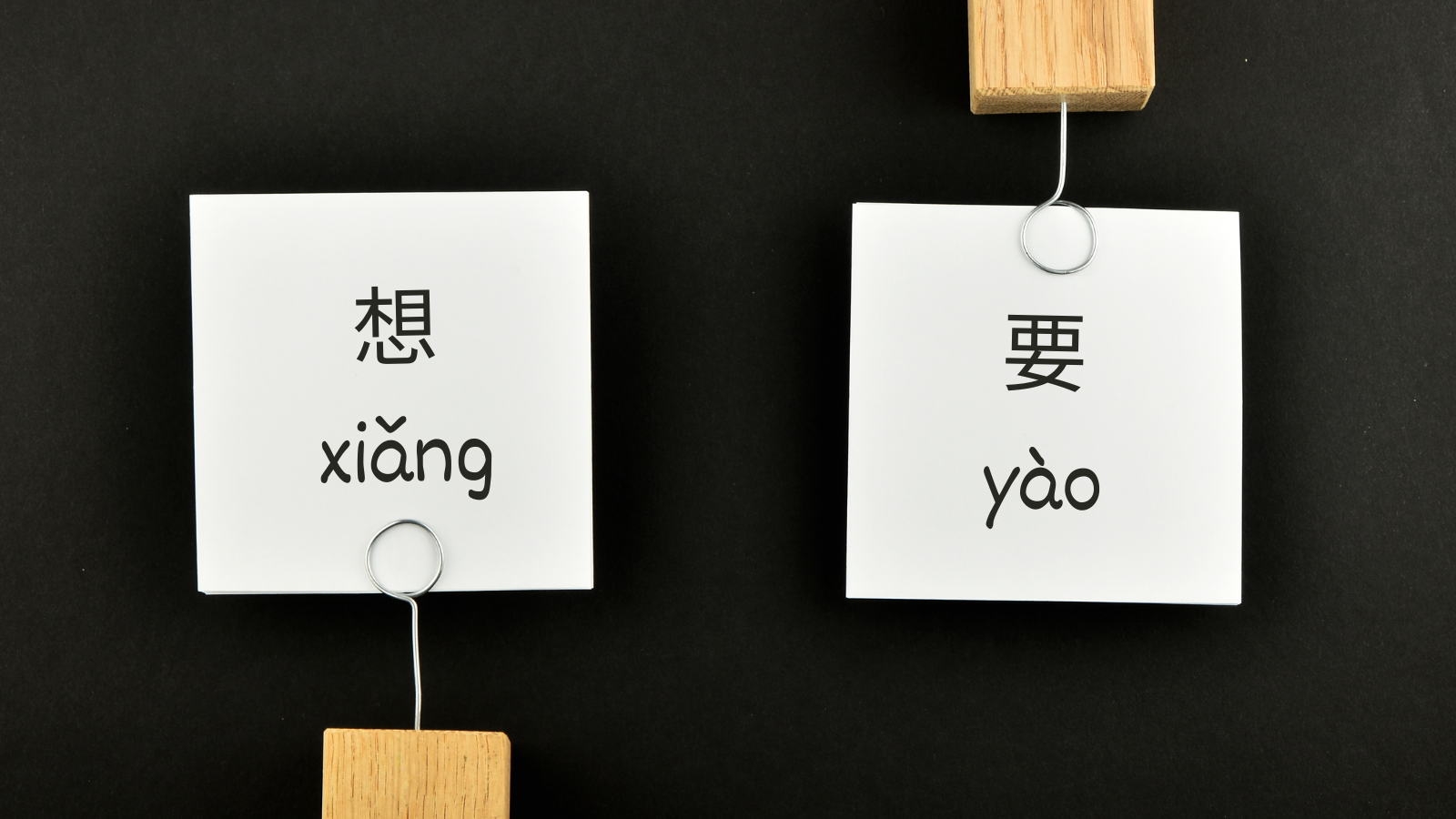想 (xiǎng) vs 要 (yào) | The Differences Explained

Introduction
Are you having trouble figuring out when and how to use 想 (xiǎng) and 要 (yào) in the right way? If so, don't worry; you're not the only one. Even for advanced Chinese learners, it can be hard to tell the difference between these two words that look the same. But no matter how well you know Chinese, this blog post will give you all the information you need to understand and use 想 (xiǎng) vs 要 (yào)! We'll get into the details so that it won't even seem like a struggle by the time you're done reading here today!
想 (xiǎng) and 要 (yào) - Similarities and Differences
Let's look at what each word means on its own.
想 (xiǎng) has many meanings in English, like “want”, “would like to” or “wish.”
It is used when you want something but are not sure if it will happen.
要 (yào) means "want", "need", or "must".
It shows that the person really needs it and is determined to get it. Sometimes, it also means they will do something in the future.
Generally, 想 (xiǎng) is more of an idea, while 要 (yào) shows a decision.
Examples
我想吃巧克力。(Wǒ xiǎng chī qiǎokèlì.) - I want to eat chocolate.
我要吃巧克力。(Wǒ yào chī qiǎokèlì.) - I want/need to eat chocolate.
The second sentence with 要 (yào) shows a stronger desire.
- 如果我有钱,我想买一辆车。(Rúguǒ wǒ yǒu qián, wǒ xiǎng mǎi yí liàng chē.) - If I had money, I would like to buy a car.
如果我有钱,我要买一辆车。 (Rúguǒ wǒ yǒu qián, wǒ yào mǎi yí liàng chē.) - If I had money, I would buy a car.
The second sentence with 要 (yào) shows a stronger determination.
- 我们想在明天之前完成这个项目。(Wǒmen xiǎng zài míngtiān zhīqián wánchéng zhège xiàngmù.) - We want to finish this project before tomorrow.
我们要在明天之前完成这个项目。(Wǒmen yào zài míngtiān zhīqián wánchéng zhège xiàngmù.) - We must/need to finish this project before tomorrow.
The second sentence with 要 (yào) shows a stronger need to complete the project.
Summary
Both 想 (xiǎng) and 要 (yào) can be translated as "want", but their meanings and uses are different. 想 (xiǎng) is often used to express a desire or wish, while 要 (yào) is used to convey a stronger sense of intention or determination.
Learners should pay attention to the context in which these words are used to better understand their meaning. If you can figure out these slight differences, you can take your Chinese to the next level. Keep an eye on our blog and read more about learning Chinese tips to stay up-to-date.
Engaging Practice Drills to Enhance Your Understanding
Fill in the blanks with 想 (xiǎng) and 要 (yào):
1.
我 _ 去旅行,但是我没有钱。
Wǒ _ qù lǚxíng, dànshì wǒ méiyǒu qián。
I want to go travelling, but I don’t have money.
2.
她 _ 吃意大利面,但是她 _ 减肥。
Tā _ chī yì dà lì miàn, dàn shì tā _ jiǎn féi。
She wants to eat spaghetti, but she wants to lose weight
3.
我 _ 去看电影,但是我 _ 完成作业。
Wǒ _ qù kàn diàn yǐng, dàn shì wǒ _ wán chéng zuò yè。
I want to go see a movie, but I need to finish my homework.
4.
我 _ 和朋友一起出去玩儿,但是我 _ 加班。
Wǒ _ hé péng yǒu yì qǐ chū qù wánr,dàn shì wǒ _ jiā bān。
I want to hang out with friends, but I need to work overtime.
Exercise Solutions Unveiled & Explored
1.
我想去旅行,但是我没有钱。
Wǒ xiǎng qù lǚxíng, dànshì wǒ méiyǒu qián。
I want to go travelling, but I don’t have money.
"Going travelling" is more of an idea.
2.
她想吃意大利面,但是她要减肥。
Tā xiǎng chī yì dà lì miàn, dàn shì tā yào jiǎn féi。
She wants to eat spaghetti, but she wants to lose weight.
"Eating spaghetti" is more of an idea or wish, and "losing weight" is more of a determination.
3.
我想去看电影,但是我要完成作业。
Wǒ xiǎng qù kàn diàn yǐng, dàn shì wǒ yào wán chéng zuò yè 。
I want to go see a movie, but I need to finish my homework.
"Go seeing a movie" is an idea or wish, and "finishing my homework" is a strong determination.
4.
我想和朋友一起出去玩儿,但是我要加班。
Wǒ xiǎng hé péng yǒu yì qǐ chū qù wánr,dàn shì wǒ yào jiā bān。
I want to hang out with friends, but I need to work overtime.
"Hanging out with friends" is a wish, and "work overtime" is a decision.
Let's get in touch
Sign up to get our newsletter with Chinese learning resources. Also, get updates about future courses and deals!
Thank you for subscribing!
Have a great day!